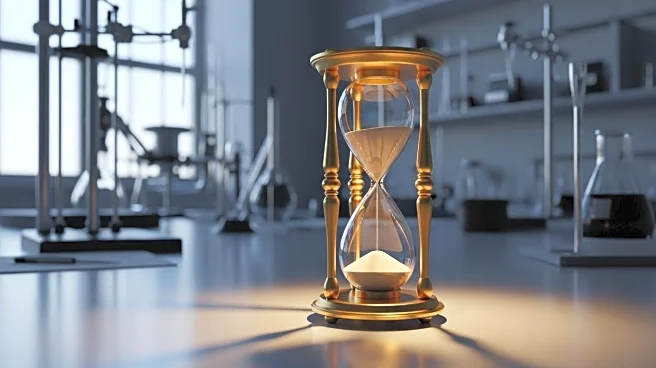What's Happening?
Recent research has shed light on the impact of aging on Leydig cells, which are crucial for hormone production in the testes. The study, published in Cell Reports, reveals that as mice age, the stiffness of their testicular tissue increases, leading to impaired Leydig cell function. This stiffness promotes a PIEZO1-mediated calcium influx, resulting in mitochondrial dysfunction and increased production of reactive oxygen species (ROS). These changes negatively affect the homeostasis of stem Leydig cells (SLCs), reducing their proliferation and differentiation. The research team, led by Jiayu Huang and colleagues, demonstrated that by culturing SLCs on softer gels and inhibiting mechanosensitive signal transduction, they could improve cell differentiation and testosterone production. The findings highlight the complex interplay between tissue mechanics and cellular function in aging.
Why It's Important?
Understanding the mechanisms behind Leydig cell dysfunction in aging is crucial for developing potential therapeutic strategies to mitigate age-related declines in hormone production. This research provides insights into how changes in the tissue environment can affect cellular processes, which could have broader implications for aging-related diseases and conditions. By identifying the role of tissue stiffness and mechanosensitive pathways, the study opens avenues for interventions that could enhance hormone production and improve reproductive health in aging populations. The findings may also contribute to the development of treatments for age-related hormonal imbalances, benefiting both the scientific community and individuals affected by these conditions.









